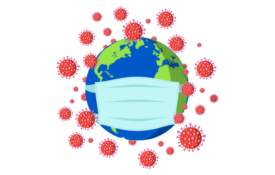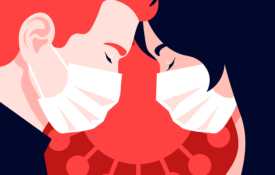-
Yes, Even Introverts Can Be Lonely Right Now
APS Member/Author: Adam Grant As an introvert, I thought I was immune to loneliness. I’ve been working remotely as long as I’ve been working. I enjoy the comfort of writing at home, the efficiency of not commuting and the freedom from interruptions by extroverted colleagues. But in my first year of graduate school, I was struggling to get my papers accepted by journals — and to feel accepted by my new classmates. In the middle of the cold, gray Michigan winter, my roommates went home for the holidays, and I felt completely isolated. ... It’s often said that extroverts get their energy from people, while introverts are energized by solitude. The data show that’s a myth.
-

COVID-19: Related Resources for the Psychological Science Community
APS is curating a collection of guidance and tools from around the web that are related to the psychological, social, and behavioral impacts of COVID-19
-

APS Backgrounder Series: Psychological Science and COVID-19: Pandemic Effects on Marriage and Relationships
Expert commentary from Paula Pietromonaco on close relationships during pandemics. [April 24, 2020]
-
‘A New Greatest Generation’: How Our Natural Resilience May Surprise Us
Anxiety, fear, and anguish are coursing through the world as we witness mounting numbers of sick people and deaths, frontline caregivers fighting for their patients’ lives with inadequate resources, and an unprecedented economic crisis that’s touching everyone and shattering the livelihoods of many. We’re all feeling it to some degree, and for those most directly and traumatically affected, the mental and emotional consequences will be severe and long-lasting, psychologists fear. ... People tend to be as resilient as they need to be, says Thomas Rodebaugh, PhD, director of clinical training in the Department of Psychological and Brain Sciences at Washington University in St. Louis.
-
When Older Relatives Shrug at Coronavirus Restrictions
I went hoarse shouting at my mother last week. “You really got into your building elevator with someone else?” She blamed the other person for standing in the middle of the elevator; I blamed her for getting in, putting herself at risk of catching the coronavirus. By the time my 88-year-old father got to the phone, I remembered the researcher Brené Brown’s theory that vulnerability opens all doors. I would move my father by sharing my deepest fear. I told him I loved him. I said the thought of losing him was devastating. I asked him, “Dad, are you afraid?” He laughed. “What’s to be afraid of?
-
Quarantine Survival Tips for Extroverts and Perfectionists — And Those Who Live With Them
Many of the memes that started after the country began social distancing involved distraught extroverts and contented introverts. Consider the Instagram image of actress Zoë Kravitz eating and drinking in the bathtub with a caption that reads, “People: I’m going crazy in quarantine. Me: Living my best life.”There’s truth to the jokes, but for some, it’s not a joking matter. People with certain psychological characteristics are more vulnerable than others to the effects of staying at home during the coronavirus pandemic. Also, what works best for one personality type might not be helpful to another.

